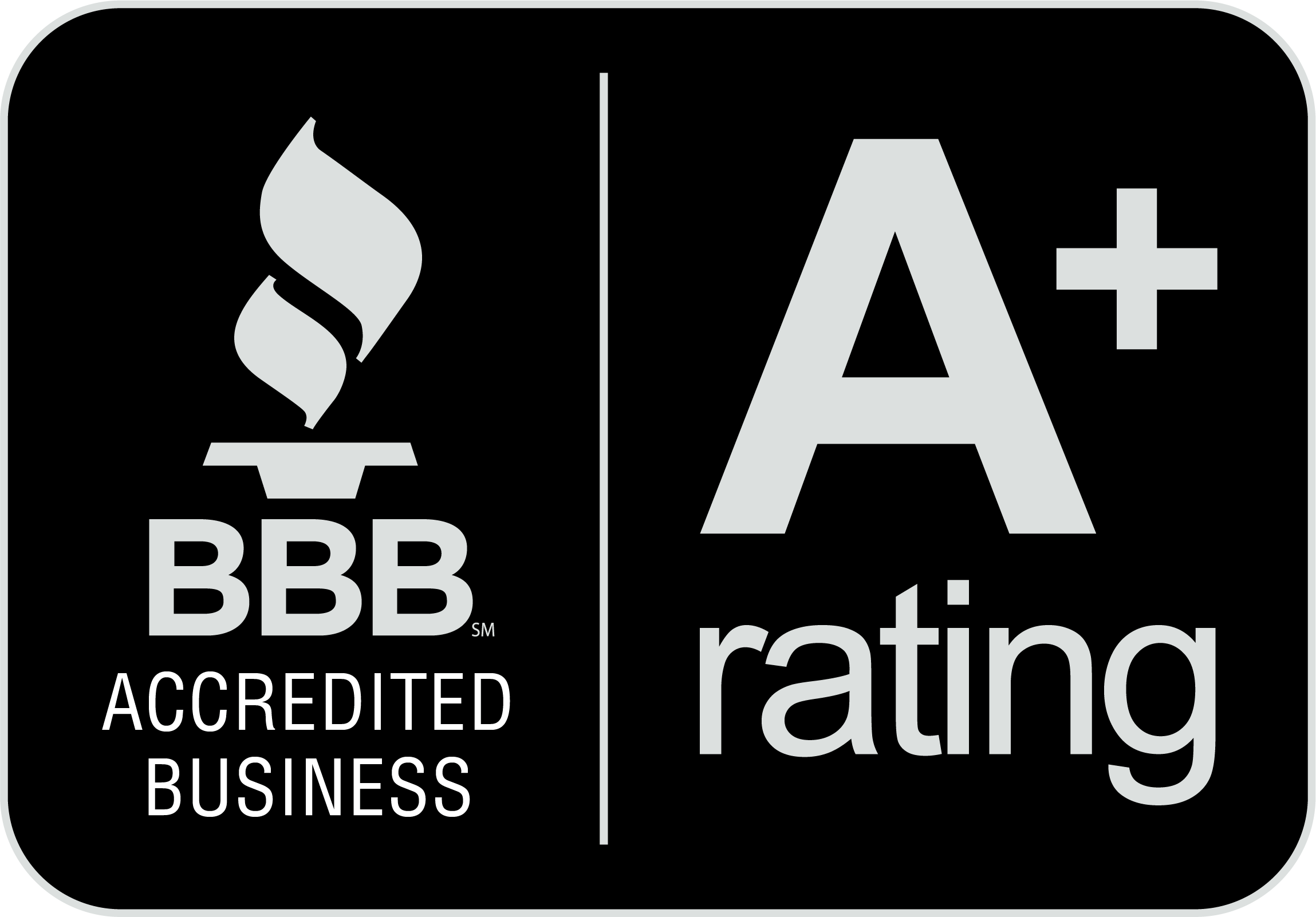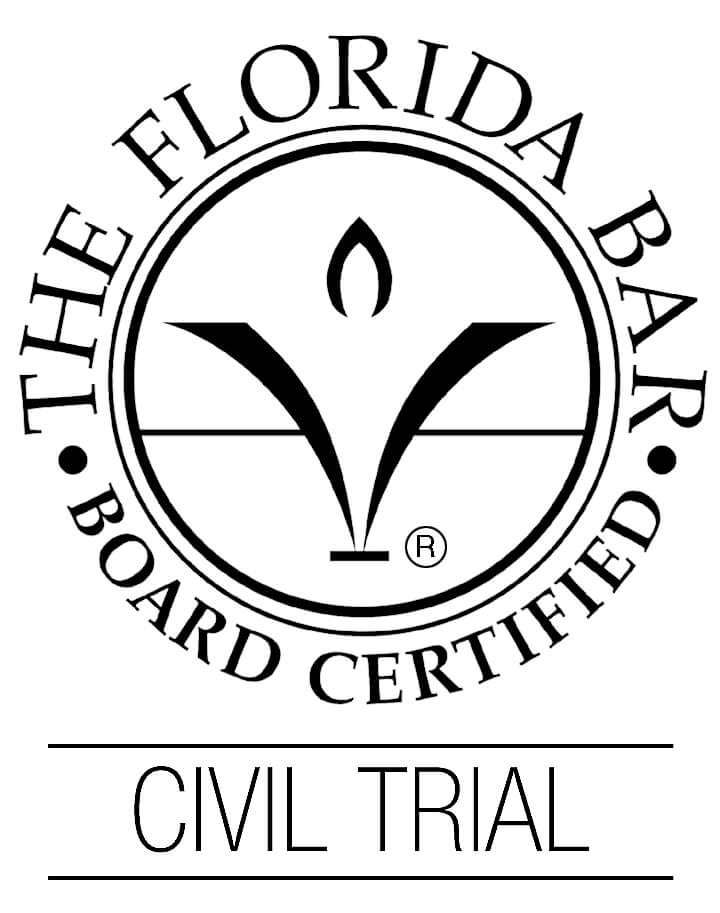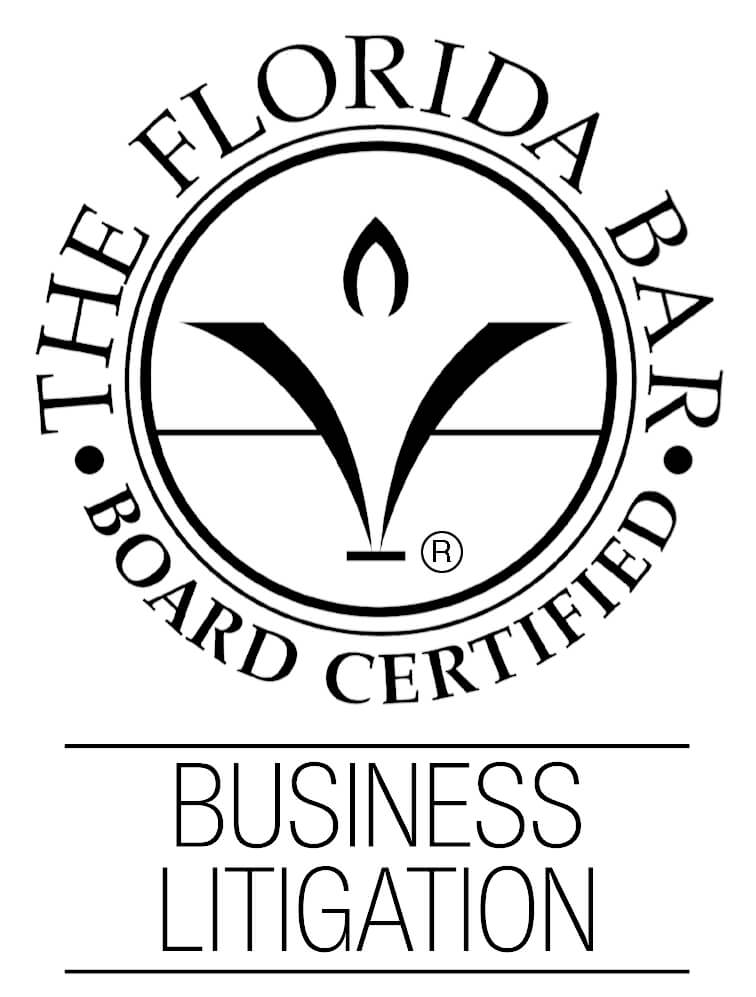Flood Damage
Flooding can leave behind far more than soaked floors and ruined belongings. In Florida, flooding has displaced families, closed businesses, and led to costly repairs far beyond what most homeowners can cover out of pocket.
Insurance providers exist to offer a safety net from these costs, but collecting on your policy isn’t always as straightforward as it seems. Too often, insurance companies interpret the line between flood and water damage in their best interest, leaving policyholders facing costs they’re covered for under their contracts.
Since 1997, The Nation Law Firm has helped Florida homeowners and property owners fight back against insurance companies that refuse to honor their claims. From hurricanes to storm surges, we understand the risks of the Sunshine State and know how insurance companies attempt to bend them to limit your recovery.
If you’re facing heavy damage from flooding or a denied flood claim, our team is here to help. Get started with our free case evaluation.
Understanding the Difference Between Flood and Water Damage
One of the most important and most misunderstood parts of a property damage claim is the difference between flood damage and water damage.
Here’s how insurance companies define each:
- Flood Damagerefers to water that enters your home from outside because of natural events, such as heavy rain, storm surge, overflowing rivers, or hurricanes.
- Water Damageusually comes from inside the home, like a burst pipe, a leaking appliance, or an overflowing bathtub.
Standard homeowners insurance policies do not cover flood damage, while water damage is often included. This distinction is important, as insurance companies may try to reclassify damage as “flooding” to avoid paying out under your homeowners insurance.
If your claim has been misclassified or you’re not sure what category your claim falls under, The Nation Law Firm can help you understand more about your situation and help you take the next steps.
Common Causes of Flood and Water Damage
Whether damage occurred suddenly or gradually over time, the end result can leave homes and businesses with extensive, costly repairs.
Here are some of the most common causes:
Flood Damage (Typically Not Covered by Standard Home Insurance):
- Hurricanes and Tropical Storms: Common in Florida, these storms often bring heavy rainfall and storm surges that lead to widespread flooding.
- Overflowing Rivers or Lakes: Rising water levels from nearby bodies of water can invade homes, especially after days of rain.
- Flash Floods: Sudden, intense rainstorms can overwhelm drainage systems and flood entire neighborhoods.
Water Damage (Typically Covered by Homeowners Insurance):
- Burst Pipes:Aging or frozen pipes can rupture, soaking walls, floors, and furniture.
- Roof Leaks: Storm damage or poor maintenance can allow rainwater to seep into the home.
- Appliance Failures: Malfunctioning washing machines, dishwashers, or water heaters can flood entire rooms.
- Sewer Backups: Sometimes covered by optional add-ons, sewer issues can cause serious health and property risks.
Where your situation falls under this umbrella determines how your claim is handled. Still, there’s always a chance that an insurance company misclassifies your damage, wrongfully disqualifying you from compensation. If your claim is being delayed, denied, or misclassified, our team is here to help.
What Is Covered by Flood Insurance?
Flood insurance is designed to cover damage caused by rising water from outside the home. It’s typically purchased through the National Flood Insurance Program (NFIP) or a private insurer.
Here’s what flood insurance usually covers:
- Structural Damage: Coverage for the foundation, walls, electrical systems, plumbing, HVAC, and built-in appliances.
- Personal Property: Some policies offer limited coverage for personal belongings such as furniture, clothing, and electronics, especially if stored above ground level.
- Debris Removal: Reasonable costs to clear out debris brought in by the flood.
- Certain Appliances: Washers, dryers, and freezers may be covered depending on the policy type and location in the home.
However, most flood insurance policies exclude coverage for temporary housing, basement contents, mold, and code-related upgrades, which can significantly reduce your payout. If you believe your insurance company is using exclusions unfairly, you should speak with an attorney quickly.
Challenges in Filing Flood Damage Claims
All property damage claims are at risk of manipulation by an insurance company, and flood damage claims are no different. They handle the process behind the scenes, so there’s always a chance that someone will run into a challenge before recovering what they deserve.
Some of the most common challenges include:
- Disputes over the source of the water(flood vs. water damage) can impact whether your claim is covered at all.
- Delays in processingcaused by excessive paperwork requests or insurer “investigations” can cause delays that drag on for weeks or months.
- Undervalued repairs, where the insurer offers a settlement far below the actual cost to restore your property.
- Coverage denialsdue to exclusions, basement limitations, or vague policy language.
These tactics can leave you feeling powerless, but you don’t have to fight back alone. Our team can help you build a defense that overcomes these challenges and, more importantly, brings you to your rightful compensation as fast as possible.
5 Steps to Take After a Flood Damages Your Property
Your actions in the first few days after a flood can make a big difference in how smoothly your insurance claim moves forward. Here’s what to do:
- Stay Safe and Avoid Hazards: Your safety is the first priority. Don’t re-enter your home until authorities confirm it’s safe. Watch for electrical hazards, contaminated water, and structures that seem unstable.
- Document Everything: Take clear photos and videos of all damage to walls, floors, furniture, appliances, and personal items. The more visual evidence you have, the harder it is for insurers to dispute your claim.
- Prevent Further Damage: If it’s safe, take steps to stop ongoing damage, such as removing wet items, using fans to dry out areas, or boarding up broken windows. Keep all receipts for temporary repairs if you do so.
- Contact Your Insurer Promptly: Notify your insurance company as soon as possible. Ask for a copy of your policy if you don’t have one and confirm how to submit your claim.
- Track Expenses: Keep receipts for hotel stays, meals, cleaning services, and any out-of-pocket costs related to displacement or repairs. The paper trail will help confirm that you receive accurate coverage.
The Nation Law Firm can assist you in filing your claim and support your next steps. Tell us more about your claim through ourfree case evaluation.
How to Prove Your Flood Damage Claim
To recover full value, you’ll need to provide clear, detailed evidence that shows both the extent of your losses and the true source of the damage. Insurers often deny or reduce claims due to “insufficient documentation,” so preparing your case properly from the start keeps you one step ahead.
Here’s what can help prove your claim:
- Photos and Videos: Document every damaged item and area of your home or business, including before-and-after comparisons if available.
- Receipts and Inventories: Provide receipts for big-ticket items and keep an itemized list of belongings with their respective values.
- Expert Evaluations: Contractor estimates, mold inspections, or engineering reports can support the cause and cost of repairs.
- Proof of the Flood: Some insurance companies may deny that a flood occurred entirely if it’s not a widespread incident. Collect documentation showing the flood’s origin, such as weather reports or local emergency declarations, to get around this.
The Nation Law firm can handle these necessities on your behalf. We ensure that all the boxes are checked, so you can focus on getting back on your feet.
Dealing With Denied Flood Insurance Claims
A denied flood insurance claim can quickly become as overwhelming as the initial disaster, especially when you’ve done everything right. Whether the insurer claims your damage isn’t covered, your documentation isn’t sufficient, or they dispute the cause of the loss, a denied claim isn’t the end – you have the right to challenge their decision.
Here’s a quick overview of the appeals process:
- Request a Written Explanation: Your insurer must provide a clear reason for the denial. Use this to identify the reason behind their denial, so you can prepare your evidence.
- Review Your Policy Carefully: Look for language related to coverage limits, exclusions, and how flood damage is defined. Our team can help interpret vague or misleading terms.
- Gather Additional Evidence: If possible, get updated repair estimates, expert reports, or additional photos to strengthen your case.
- File an Appeal Promptly: Most flood insurance providers, including NFIP, have a formal appeals process with strict deadlines. Delaying your response could cost you your right to challenge the denial.
Appeals can get complicated quickly in flood damage claims. Our team can help you navigate through the process and towards the best possible outcome, for no upfront costs.
Mold and Secondary Damages After Floods
Unfortunately, flood damage doesn’t always stop when the water recedes. In many cases, the real problems start days or weeks later, with mold growth, wood rot, electrical issues, and structural weakening developing as secondary, yet devastating effects of water damage.
Here are the two main details to know:
- Mold Remediation: Mold starts to grow within 24 to 48 hours after a flood. Some insurance policies may cover mold removal, but only if you can show that it was a direct result of a covered flood and that you acted quickly to prevent its spread. Check your policy to be sure.
- Hidden Structural Damage: Warped floors, weakened drywall, and compromised foundations may not be immediately visible but can pose serious safety and financial risks over time.
Insurers may argue that mold or secondary issues were caused by negligence, pre-existing conditions, or improper maintenance, rather than the flood itself. If they do, The Nation Law Firm can help you present the truth in the most powerful, detailed way.
Bad Faith Practices in Flood Insurance
Insurance companies are required to process your claim fairly. Otherwise, their behavior is labeled as “bad faith,” and they may become liable for a lawsuit.
Bad faith practices may include:
- Unreasonable delays in investigating or paying your claim
- Lowball settlement offers that don’t reflect the true cost of repairs
- Misclassifying flood damage as uncovered water damage
- Ignoring or downplaying expert reports or repair estimates
- Refusing to explain a denial or citing vague policy language
If your provider acts in any of these ways, you may have grounds to seek not only the compensation you’re owed, but additional damages for their misconduct. This process is complicated, but our team can help make it as painless as possible.
Legal Support for Flood and Water Damage Disputes
Flood damage can turn your life upside down, and dealing with an uncooperative insurance company only makes things harder. At The Nation Law Firm, we stand with Florida homeowners and business owners who are being ignored, underpaid, or wrongfully denied.
We know how insurers operate, and we know how to fight back. If your flood or water damage claim isn’t being handled fairly, let us review your policy, investigate the claim, and protect your rights every step of the way. Get started with our team today through ourfree case evaluation.
Frequently Asked Questions
What is the difference between flood damage and water damage according to insurance companies?
Flood damage is caused by rising water from outside your home, like storm surge, heavy rain, or overflowing rivers, while water damage typically comes from inside, such as burst pipes or roof leaks. Most homeowners' policies cover water damage but exclude flood damage unless you have separate flood insurance.
What steps should I take immediately after my home is damaged by a flood?
Ensure it’s safe to enter, then document all damage with photos and videos. Contact your insurer promptly, begin preventing further damage, and save all receipts for repairs and living expenses.
What does flood insurance typically cover, and what is excluded?
Flood insurance generally covers structural damage, essential appliances, and some personal property. It often excludes basement contents, mold remediation, additional living expenses, and upgrades required by new building codes.
How can I prove that my water damage was not caused by a flood?
Gather documentation showing the source, such as plumber reports, appliance failure records, or roof repair invoices. Photos and expert evaluations can help confirm the damage was internal, not due to external flooding.
What should I do if my flood insurance claim is denied?
Request a written explanation, review your policy, and gather any missing evidence. You have the right to appeal, and our team can help you strengthen your case and file on time.
What types of secondary damage, such as mold, can I claim after a flood?
Mold, rot, and structural weakening may be covered if you can show they resulted directly from the flood and you took timely steps to prevent further damage. Coverage often depends on your policy’s specific terms, so make sure to stay familiar with your contract.
How long does the flood damage claims process usually take?
It varies from case to case. Some claims are resolved in weeks, but others can take months, especially if there are disputes or delays. Having legal support can help move the process forward more efficiently.
Can I file a claim if both my homeowners and flood insurance deny coverage?
Yes. You may still have options, including appealing both denials, identifying errors in how the claim was handled, or pursuing legal action if the denial was made in bad faith.
What are my options if my insurance company undervalues my flood damage claim?
You can submit updated repair estimates or expert evaluations and negotiate with your insurer. If they refuse to adjust the amount fairly, a legal team can help you dispute the offer.
How can an attorney help with my flood or water damage insurance dispute?
An attorney can review your policy, challenge wrongful denials or low settlements, manage communications with your insurer, and, if necessary, file a lawsuit to hold them accountable.






.svg)
